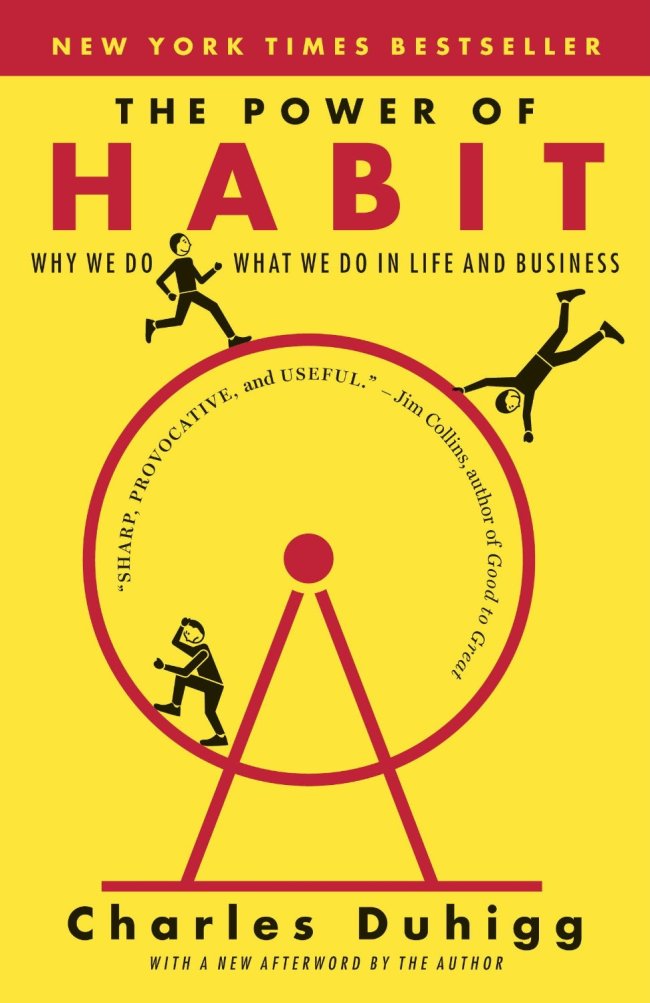I’m currently reading “The Power of Habit” by Charles Duhigg. I’m the type of person who must know *why* we do the things we do, down to the electrical impulses and signals in our brain. This book delivers.
According to the book, up to 40% of our actions each day are habits. They exist, in part, to minimize the amount of information actively processed by the brain. For example, when driving to a new location for the first time, you pay attention to all the details along the way, but once it becomes “routine” or “habit”, you barely think about it. And that’s not just a saying. Studies show in a new environment, the brain goes haywire processing everything, but once it becomes “habitual”, activity literally decreases. (16) This means we’re not doing a lot of thinking when implementing habits. We’re just doing them.
Although I’ve just begun Duhigg’s book, I’ve learned the general workings of habits in the brain. Basically, we like things that make us feel good. (No shocker there.) These are “rewards.” Examples of rewards are endorphins from exercise, feeling skinny from dieting, the clean feeling of brushed teeth, etc. The actions which yield these rewards (the exercise, dieting, brushing teeth, etc.) are what we think of as the actually “habits.” But really the habits are a cycle. The actions are set off by “cues” – things which signify the beginning of the action and thus the ultimate reward, like putting on your exercise shoes, preparing your meal, or waking up and picking up your toothbrush. “Cravings” are the desire for the rewards, and they are set off by cues. So when we put on our exercise shoes, we crave the reward.
Habit Loop = Cues > Cravings > Actions > Rewards
Even crazier? Once the habit is established in the brain, we can get the dopamine hit before the actual reward has occurred. We can also become stuck in habits even when they no longer yield the reward. As the book poetically says, “The brain has this amazing ability to to find happiness even when the memories of it are gone.” (28).
Applying the science of habit to my life, this partly explain why an established Intermittent Fasting or Paleo lifestyle becomes easy to sustain. Routines become “hard-wired” in the brain.
Fasting (IF) minimizes the cues we deal with/must resist each day. (And willpower may be limited, which I shall discuss in a future post.) Boredom is often a cue for eating, yielding the reward of “feeling good” from food. When you fast, you eradicate eating as a solution to boredom. For me personally, a major reward of fasting is the focused, “light” feeling during the day, and the feeling of satiation at night. I both CRAVE the fasted state AND the fed state, at their proper times. Consequently, there is never a point of time with fasting where I’m not happy with my present situation and seeking a reward.
With Paleo, I believe the main “reward” for me is the healthy, clean feeling clean. I used to wonder why people became “health nuts,” dismissing it as silly obsession. Now I get it. Once you experience the clean, radiant, non-toxic feeling of being healthy, you crave it indefinitely, and establish habits and cues which sustain it.
As for wine, I crave the stress relief and relaxation, sans guilt, thanks to the health benefits.
The key to new habits, is thus setting cues which lead to healthy rewards. It’s not about focusing on the habit itself, but rather the bookending cue and reward. In health, once you crave the “reward” of feeling healthy and happy, good eating habits become incredibly easy to maintain.


